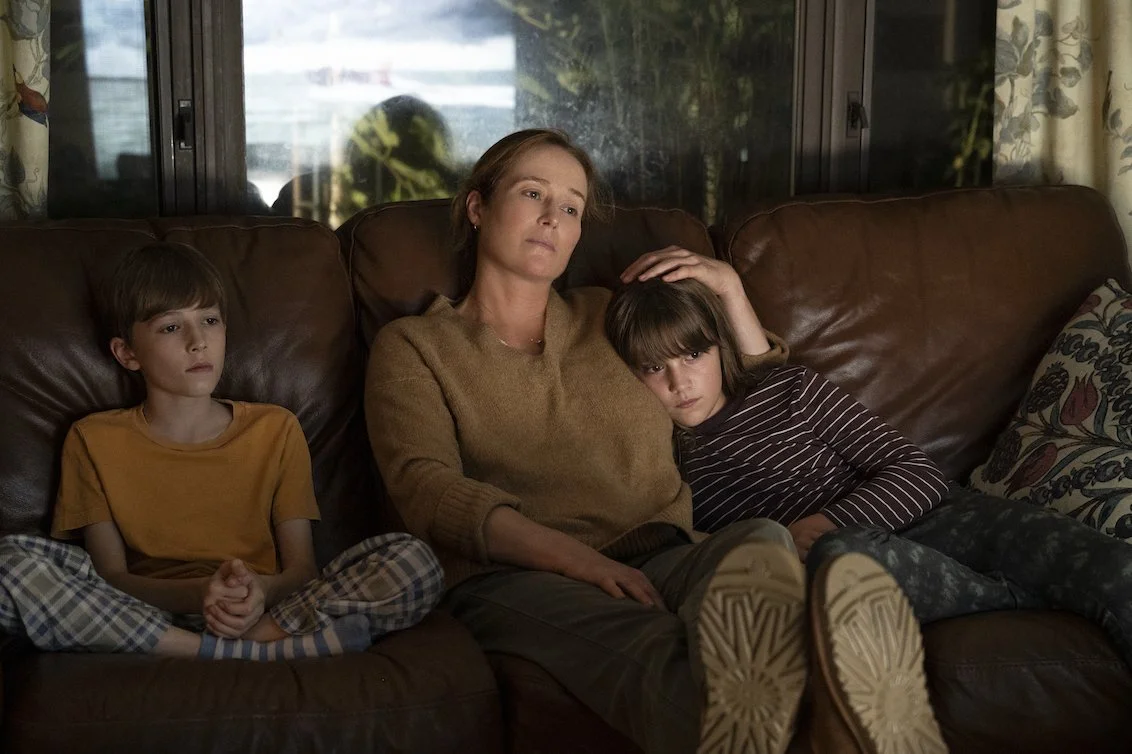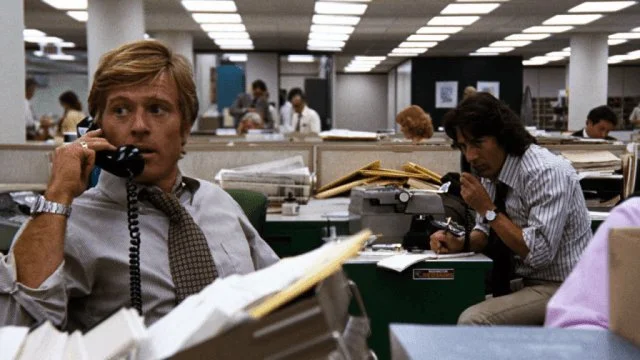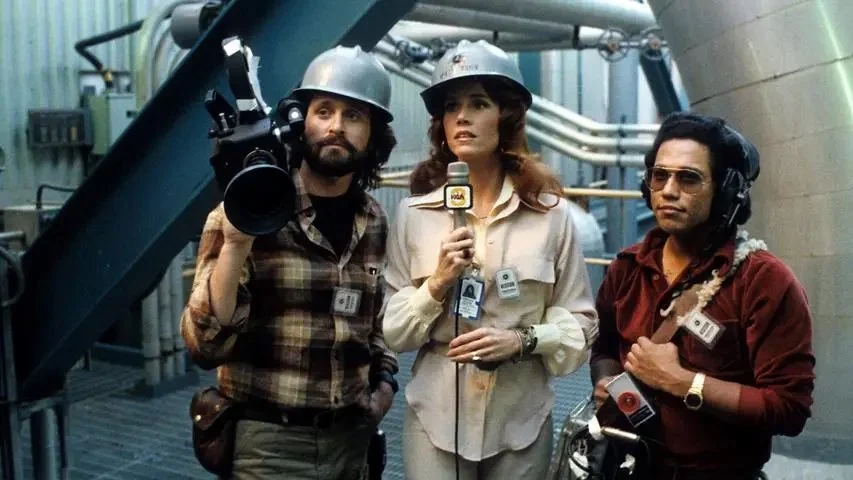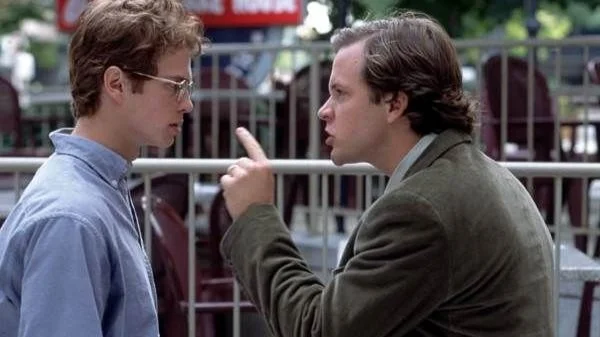Believe Her
The harvey Weinstein sexual abuse/assault investigation gets the not-quite-fiery Hollywood treatment.
She Said
Director: Maria Schrader • Writer: Rebecca Lenkiewicz, based on the book by Jodi Kantor, Megan Twohey
Starring: Carey Mulligan, Zoe Kazan, Patricia Clarkson, Andre Braugher, Jennifer Ehle, Samantha Morton, Ashley Judd, Sean Cullen, Angela Yeoh, Tom Pelphrey, Mike Houston
USA • 2hrs 9mins
Opens Hong Kong November 17 • IIA
Grade: B-
About halfway through She Said, New York Times investigative reporter Megan Twohey (Carey Mulligan) sits down in a pub with two women colleagues to grab lunch while they discuss the development of their investigation into sexual assault and abuse accusations levelled at former Miramax boss, producer and pig Harvey Weinstein. Naturally, some white guy decides to hit on them, and despite being told they were busy, he keeps at it. Twohey loses it, and tells him to “Get the fuck out of here! Fuck you! Fuck off!” The scene encapsulates the entitled position men often work from, and that women have to deal with every single day. In the end, of course, Twohey’s the “bitch.”
Around the same time she tells her partner, Jodi Kantor (Zoe Kazan), “My fear is that the story will run and that people won’t care.” That’s a loaded statement, given that people very much did care – Time’s Up and #MeToo came from it – and that in the five years since the NYT published, both those movements have imploded, not much has changed, and Twohey was proven right. No one cares. Again.
These are the little details that make I’m Your Man director Maria Schrader’s retelling of Twohey and Kantor’s Pulitzer Prize-winning investigation watchable, if not nearly as incendiary as it should be. She Said is sturdy in its painstaking recreation of the investigation that rocked the world, but it’s strangely dispassionate, and has more in common with Jay Roach’s too low-key Bombshell (note the background crossover between the two, chiefly the election of alleged “pussy grabber” Donald Trump and the resignation of Fox News honcho Roger Ailes) than with its most obvious inspiration, All the President’s Men, still the gold standard for reporter thrillers.
But She Said follows all the beats of the journalistic procedural, a tried and true sub-genre as exciting as a cops ‘n’ robbers actioner. Schrader has control of the form’s language: the late nights lamplight, empty offices, old fashioned pavement-pounding research, the “Eureka!” breakthroughs and worn down witness interviews – a writer perched on the edge of a desk. And like many journalist films, there’s a good deal of romanticism. Despite the prescience of 1957’s Sweet Smell of Success and 1976’s Network – about the fine line between news and entertainment – Tom McCarthy’s Oscar-winning Spotlight, Sidney Pollack’s 1981 corker Absence of Malice, Roland Joffé’s The Killing Fields, George Clooney’s Good Night and Good Luck and Peter Weir’s The Year of Living Dangerously are just a handful of white knuckle dramas about fearless warrior-writers telling us what we need to know. Whatever the story, The Fourth/Fifth Estate is a movie star.
And make no mistake: the hallowed halls of the NYT are reverently photographed; it’s very nearly another character, the only one with the backbone to run with the Weinstein news. (Let’s not forget it was a sports tabloid that broke Romania’s health care scandal as documented in Collective. It’s the reporter, not the outlet. But I digress.) Schrader and screenwriter Rebecca Lenkiewicz, do a respectable job of finding some degree of tension to propel She Said forward, but it lacks the frisson of the aforementioned greats. We know story, and in amassing the details of the staff harassment and hush money in two concentrated hours it drives the point home, but not explosively so. It’s more confirming than agitating. As Twohey and Kantor unearth more and more pieces of the puzzle, it never feels like a reckoning is coming. Maybe it’s because we know it isn’t, but may also be because She Said never digs deep into the reasons Weinstein got away with his crap for so long.
That said, Schrader and Lenkiewicz keep the lens on the women at the heart of the story, both those terrorised by Weinstein and the working mothers who brought the terror to light; notably Weinstein is seen only as a lumbering presence in a NYT office for an interview (embodied by Mike Houston, poor bastard). It’s one of the few sequences where Natasha Braier’s cinematography, until then mostly functional, remains resolutely focused on the unimpressed expression on Twohey’s face. Similarly, in between interviews with Weinstein’s victims, including Miramax workers Laura Madden and Zelda Perkins (Jennifer Ehle and Samantha Morton, standouts in a few short scenes), and the actor who gave the story weight by going on the record, Ashley Judd (as herself), the conventional structure gives Twohey and Kantor room to breathe as women, as mothers, as professionals. The normally vanilla Mulligan (at least until Promising Young Woman) and Kazan (The Big Sick) find a tactile spark in their grounded performances, and the bond they form while doing a hideous job deserved a bit more time than it got. As did the one forged between them and Weinstein’s targets. There’s no bullshit “competitive women” vibe, and there’s no sense of “It’s not my problem” from Madden, Perkins, Judd and the rest. It is their problem, it’s all their problem, and the thrill of seeing the collective resolve to fuck some shit up by all involved is low-key exhilarating. But in the end Lenkiewicz is so respectful She Said comes off as somewhat inert. The “Aha!” moments are subtle; the race to deadline is unpanicked under the watchful eye of executive editor Dean Baquet (Andre Braugher). Admittedly hovering over a “Publish” tab on a screen isn’t quite as emotional as racing into a loud printing room and yelling “Run it!” (believe me, I know). Sometimes a little sensation goes a long way. We all know what she said. But we need to feel it. — DEK
Meet the Press
All the President’s Men (1976), d: Alan J Pakula
The apex predator of free press movies. The classic tracks superstar reporters Woodward & Bernstein cracking Watergate and forcing Nixon from office.
The China Syndrome (1979), d: James Bridges
When a TV jouralist and her camera operator dig into safety cover-ups and conspiracy at a nuclear power plant. They’re scorned by the viewing public. Huh.
Shattered Glass (2003), d: Billy Ray
Anakin Skywalker (!) stars as disgraced New Republic reporter Stephen Glass, exposed by (then-new) digital journalist Adam L. Penenberg.






